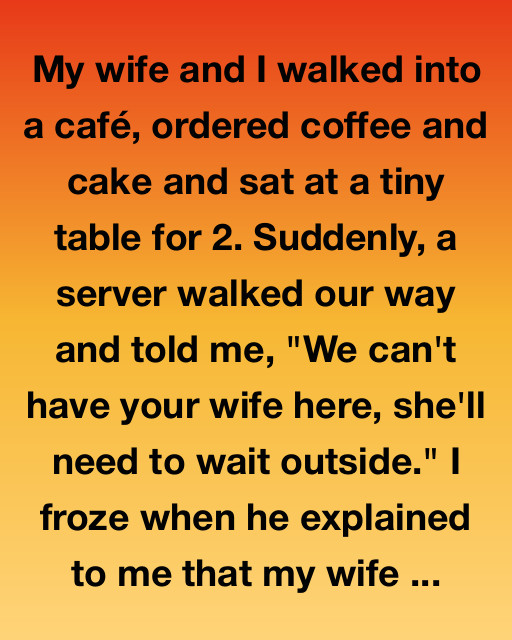The word stealing felt like a foreign object lodged in my brain, completely incompatible with the woman sitting across from me. We left without a word. Outside, the air was sharp with autumn, leaves crunching beneath our steps as though the whole world had decided to underline the moment.
In the car, I finally asked, carefully: “Is it true?”
Ana didn’t flinch. “Yes,” she said.
No tears. No excuses. Just a plain truth laid down between us like a stone too heavy to lift. She explained how it had happened months ago—three times in total. Once when rent was overdue, another time when the washing machine broke down, and again when the car demanded repairs we couldn’t afford.
“Twenty dollars the first time,” she admitted. “I felt sick afterward. I promised myself it would never happen again. But every time, I told myself I’d pay it back. I was too ashamed to tell you.”
I remembered that season. We were scraping coins together for groceries, selling off things we loved and pretending it didn’t hurt. Shame is invisible until you name it, and then it sits on the table like an unwanted guest.
That night, I slept on the couch. Not because I wanted to punish her, but because I needed silence to sort through the noise in my head.
The next morning, I found a note on the counter: I’m going to try to make things right. Don’t wait up.
Late that afternoon, the café manager, Evelyn, called me. She explained Ana had come back with an envelope of cash and a handwritten letter. She had apologized in person, asking them to accept repayment. “Not many people do that,” Evelyn said, her voice carrying a quiet respect.
Ana returned home just after six, looking wrung out but lighter, like she had finally set down a burden she’d been carrying alone. She told me about the guilt, how it had lived on her chest for months. Why she’d avoided that part of town. Why she stopped suggesting coffee dates. She admitted the secrecy had punished her more than the café ban ever could.
We decided to go back to counseling. At one session, the counselor asked me, “Do you think you’ve forgiven her?”
“Yes,” I said. “Not because I’m supposed to, but because she didn’t hide. She told the truth and tried to make it right.”
Life slowly found steadier ground again. Ana picked up a part-time job at a nonprofit thrift shop. On Fridays, she started slipping a five-dollar bill into a small envelope she called the karma jar. When I asked about it, she smiled and said, “When it’s full, I’ll leave it in their tip jar. No note. No name.”
A year later, the café posted a photo on Instagram: a thick envelope with a handwritten message—For your kindness, from someone who’s still learning. The comments poured in, people writing about second chances and redemption. Ana never claimed credit, but we both knew.
Then one evening, Evelyn called again. The café was opening a second location, and they wanted Ana to help launch a community program—free workshops for people facing hard times. “She’d be perfect,” Evelyn said.
When Ana heard, she cried. To go from being banned to being invited back—this was the distance between punishment and purpose.
She eventually started a monthly support circle at the café. People came and shared the worst thing they’d ever done, and discovered the sky didn’t fall. One evening, an eighteen-year-old girl named Talia lingered after the group. Hands trembling, she confessed she’d been caught stealing at work and didn’t know how to repair her life. Ana told her gently, “It’s not about being perfect. It’s about taking the next right step.”
That girl sobbed like someone had cracked open a locked window.
The café later presented Ana with a small plaque: Broken crayons still color. She hung an identical copy in our kitchen. I see it every morning and think about the way a marriage absorbs mistakes—not by pretending they never happened, but by choosing to build something strong enough to hold them.
We still don’t visit that first café together. Not because we aren’t welcome, but because the story has moved on. The real lesson wasn’t in the public embarrassment or the whispered accusations. It was in the quiet, inconvenient work of repair. Ana didn’t transform overnight into someone unrecognizable. She became more herself—truer, humbler—by owning the harm, making amends, and then paying it forward.
If you’re carrying a secret like that, start where you are. Small steps. Honest ones. Own what you’ve done, repair what you can, and then use the lesson to lift someone else. Life is messy. Mistakes are inevitable. But forgiveness—both giving it and earning it—can turn stumbles into a path worth walking.
Because sometimes, the measure of love is not whether you avoid breaking. It’s whether you learn how to build again after the crack appears.

